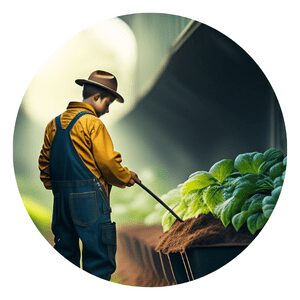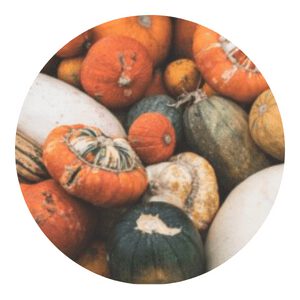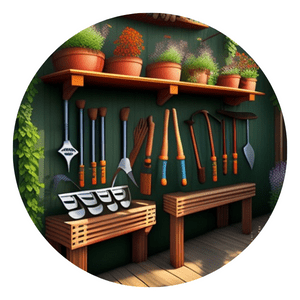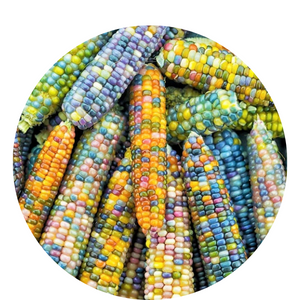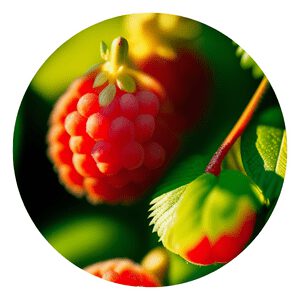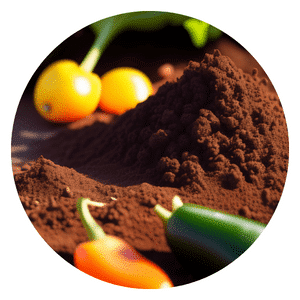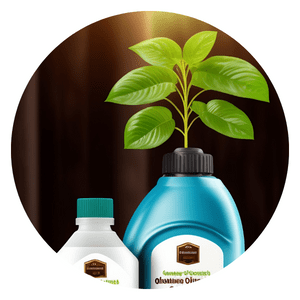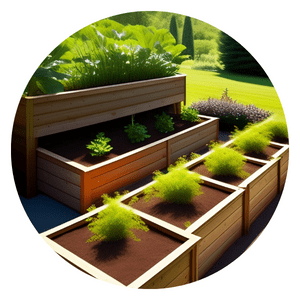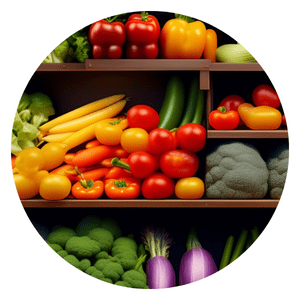Organic vs. Non-Organic Seeds: Which Should You Choose?
When it comes to the health of your garden and its produce, the quality of your seeds is a major factor.
Choosing between organic and non-organic seeds can be tricky, but understanding the differences between the two is key.
Organic seeds are grown in soil that has been free from chemical fertilizers, pesticides, and herbicides for at least three years.
Non-organic seeds are grown in soil treated with synthetic fertilizers, pesticides, and herbicides.
Seeds Menu
Organic Seeds: The Sustainable Choice
Organic seeds are the sustainable choice for gardeners who prioritize environmentally friendly practices.
These seeds are grown without synthetic fertilizers, pesticides, or genetically modified organisms (GMOs).
Unlike non-organic seeds, organic seeds do not contribute to environmental degradation through soil erosion and depletion.
Instead, they promote biodiversity by preserving natural habitats.
Moreover, organic seeds encourage the growth of healthy plants that resist pests and diseases naturally. This means that gardeners can avoid using harmful chemicals on their crops while still achieving high yields.
The quality of organic produce is often superior to that of non-organic produce because it contains higher levels of essential nutrients like vitamins and minerals.
In summary, choosing organic seeds is an easy way to support sustainable agriculture practices while enjoying healthier food options.
By choosing to grow your own organic vegetables with sustainable methods in mind you’re indirectly contributing towards reducing global warming effects, ensuring a better future for upcoming generations.
Definition and characteristics of organic seeds
Organic seeds are those that have been produced without the use of synthetic fertilizers, pesticides, and other harmful chemicals.
Instead, they are cultivated using natural methods such as composting and crop rotation to maintain soil fertility and pest control.
These seeds come from plants that have been grown under strict organic standards, ensuring that they contain no genetically modified organisms (GMOs) or residual toxins.
One of the main characteristics of organic seeds is their superior quality compared to non-organic options. They tend to be more resilient and adaptable to changing weather conditions, resulting in stronger plants with better yields.
Additionally, organic seeds often contain higher levels of nutrients due to the healthy soil in which they are grown.
Finally, purchasing organic seeds supports sustainable agriculture practices and helps protect the environment from harmful chemicals used in conventional farming.
By choosing organic seeds over non-organic ones, you can ensure a healthier future for both yourself and the planet at large.
Advantages of using organic seeds
One of the primary advantages of using organic seeds is that they have not been genetically modified. This means that they are more likely to be resistant to pests and diseases because they have not been altered in a laboratory setting.
Additionally, organic seeds are often bred for their flavor and nutrition rather than their shelf life or appearance.
Another benefit of using organic seeds is that they promote biodiversity.
Organic farmers typically use a variety of different crops to help prevent soil erosion, control pests, and provide habitat for beneficial insects.
By planting diverse crops from organic seeds, you can help support this important work and contribute to a healthier ecosystem.
Finally, if you choose to grow your own food with organic seeds, you can feel confident knowing that your produce is free from harmful chemicals like pesticides and herbicides.
This can be particularly important if you have young children or pets who may come into contact with your garden.
Overall, using organic seeds is a smart choice for anyone who cares about the health of their family and the planet.
Examples of popular organic seed varieties
1. One of the most popular organic seed varieties is kale.
This leafy green vegetable is not only rich in vitamins and minerals but also easy to grow from seed.
Popular types of kale include Lacinato, Red Russian, and Curly Green.
2. Another organic seed variety that has gained popularity in recent years is quinoa.
Quinoa seeds are high in protein, fiber, and essential amino acids, making them a great addition to any diet.
The most commonly grown varieties of quinoa include white, red, and black.
3. Tomatoes are another beloved organic seed variety among gardeners and home growers alike.
Some popular heirloom tomato varieties include Cherokee Purple, Brandywine Pink, and San Marzano Plum.
These tomatoes offer a distinct flavor profile that can’t be found in store-bought varieties.
In addition to vegetables and grains, there are also popular organic seed varieties for herbs like basil, cilantro,and parsley.
These herbs are easy to grow from seed indoors or outdoors during the growing season.They add flavor to dishes while providing medicinal benefits as well.
Finally,a wide range of fruit trees can be grown using organic seeds such as strawberry plants which come with antioxidant benefits.Among others we have peaches,pomegranates,figs,citrus fruits like lemons,limes among others.
This ensures that you enjoy fresh produce right from your backyard farm without having to worry about pesticide residues or genetic modification concerns associated with non-organic seeds.
Non-Organic Seeds: Understanding the Alternatives
When it comes to choosing the best seeds for your garden, organic is often seen as the better option.
But what about non-organic seeds? Understanding the alternatives to organic can help you make an informed decision.
Non-organic seeds are typically produced using conventional farming methods that involve synthetic fertilizers and pesticides. While these methods may be more cost-effective, they can have negative impacts on both the environment and human health.
In addition, non-organic seeds may not be genetically diverse, making them more vulnerable to disease and pests.
However, there are some advantages to using non-organic seeds.
For one, they tend to be more widely available than their organic counterparts. Non-organic seeds also tend to produce larger yields due to their use of synthetic fertilizers.
Ultimately, whether you choose organic or non-organic will depend on your personal values and gardening goals.
Organic or non-organic, which should you choose? The answer depends on what you'd like to use. Do you care if the planet stays green? Then seek out the organic you’ve everthing seen. Forget harmful chemicals and save your health, Go with the organic, nothing else. Pesticides are minimized and plastic's not needed, Find yourself organic and proceed!
Chappy The Gardener
Definition and characteristics of non-organic seeds
Non-organic seeds are those that have been treated with synthetic chemicals or genetically modified to produce a specific trait.
These seeds are often produced in large quantities and sold to farmers who want higher yields, resistance to pests and diseases, or other desirable traits.
Non-organic seeds do not comply with organic farming standards and are not allowed in certified organic crops.
One of the main characteristics of non-organic seeds is the use of chemical treatments such as pesticides, herbicides, fungicides, and fertilizers. These chemicals can be harmful to both human health and the environment.
Additionally, non-organic seeds may contain genetically modified organisms (GMOs), which can pose risks to biodiversity and may have unknown long-term effects on ecosystems.
Another characteristic of non-organic seeds is that they tend to be less diverse than their organic counterparts since they are produced for specific commercial purposes rather than being adapted to local environments.
This lack of diversity can make crops more vulnerable to disease outbreaks or climate change impacts.
Overall, choosing between organic and non-organic seed depends on personal preference but it’s important for consumers and farmers alike to understand the differences between these two types of agricultural practices.
Considerations when using non-organic seeds
When it comes to planting a garden, choosing the right seeds is crucial.
While organic seeds are often the preferred choice for many gardeners due to their non-GMO status and sustainable farming practices, non-organic seeds can still be a viable option.
However, there are some important considerations to keep in mind when using non-organic seeds.
Firstly, non-organic seeds may have been treated with chemicals such as pesticides or fungicides during the growing process. This means that these chemicals could potentially end up in your soil and ultimately in your plants and produce.
It’s important to research the seed company you’re considering purchasing from and find out what kind of seed treatment they use.
Another consideration is genetic modification.
Non-organic seeds may be genetically modified, which could pose health risks or environmental concerns.
Again, researching the seed company’s practices can help determine if their products are genetically modified or not.
Ultimately, deciding between organic and non-organic seeds comes down to personal values and priorities. However, by keeping these considerations in mind when choosing your seeds, you can make an informed decision that aligns with your gardening goals and values.
Examples of non-organic seed varieties
Non-organic seed varieties are those that have been genetically modified or treated with chemicals to enhance their growth and productivity.
One example of a non-organic seed variety is the Roundup Ready soybean, which has been genetically engineered to resist glyphosate herbicide. Another example is Bt-corn, which has been modified to produce its insecticide and protect against pests.
In addition, many non-organic seeds have been treated with fungicides and other chemicals to protect against disease and increase yield.
These treatments can pose health risks for humans who come into contact with them during planting or harvesting.
Overall, while non-organic seeds may offer higher yields in the short term, they come at a cost to both human health and environmental sustainability.
Choosing organic seed varieties ensures that you are supporting sustainable agriculture practices that prioritize both human health and ecological balance.
Factors to Consider in Seed Selection
When selecting seeds for your garden, it’s important to consider whether the seeds are organic or non-organic.
Organic seeds are those that have been grown without the use of synthetic fertilizers, pesticides, or genetically modified organisms (GMOs).
Non-organic seeds may contain these substances and may be more likely to produce plants that require additional chemical inputs to thrive.
Another factor to consider when selecting seeds is their source.
Choosing locally adapted varieties can increase your chances of success in growing a healthy crop. It’s also important to select seeds from reputable sources that prioritize seed purity and quality.
Lastly, it’s vital to consider the specific needs of the plant you want to grow when selecting seeds. Different varieties of plants have different requirements for soil type, sun exposure, water needs, and pest resistance.
By choosing the right seed variety for your particular growing conditions and goals, you can maximize your chances of a successful harvest while minimizing potential problems down the line.
Certification and labeling
One way to ensure that you are buying the right kind of seeds is by looking for certifications and labels.
In the case of organic seeds, look for those that have been certified by the United States Department of Agriculture (USDA). This certification ensures that the seeds were grown without synthetic fertilizers, pesticides, or other harmful chemicals.
Additionally, non-GMO labels indicate that the seed has not been genetically modified.
When it comes to non-organic seeds, there are still some certifications to look out for.
The Non-GMO Project Verification label indicates that a product has gone through rigorous testing and analysis to confirm its non-GMO status.
Another useful label is the Certified Naturally Grown (CNG) label which verifies that a farm uses natural practices in their farming methods but may not be able to afford USDA Organic Certification.
In summary, certifications and labeling can help make choosing between organic and non-organic seeds easier.
By looking for labels such as USDA Organic or Non-GMO Project Verified, you can feel confident in your purchase knowing that you are making an informed decision and supporting sustainable farming practices.
Availability and variety options
Organic seeds have become increasingly popular in recent years.
They are grown without the use of synthetic fertilizers, pesticides, or other harmful chemicals. This makes them an excellent choice for those who want to grow their fruits and vegetables naturally, without any negative environmental impact.
In addition to their eco-friendliness, organic seeds also offer a wide range of variety options.
You can find organic seeds for almost any type of fruit or vegetable you could imagine.
From heirloom tomatoes to rare peppers, there is no shortage of options when it comes to organic seed varieties.
Non-organic seeds also offer a considerable variety option.
However, they may not be as widely available as their organic counterparts.
Additionally, non-organic seeds may contain genetically modified organisms (GMOs) and potentially harmful chemicals that could harm both the environment and consumers’ health if consumed over time.
Therefore, choosing organic seeds ensures that you are getting high-quality products while supporting sustainable farming practices that benefit everyone involved in the production chain – from farmers to consumers alike!
Cost considerations
When considering the cost of organic versus non-organic seeds, it’s important to remember that organic seeds are often more expensive due to the certification process required for them.
This means that you might end up paying more for a packet of organic seeds than you would for non-organic ones.
However, it is worth noting that when you use organic seeds, you know that they haven’t been treated with any harmful chemicals or pesticides.
Another thing to consider when looking at cost is the long-term benefits of using organic seeds.
Organic farming practices can help improve soil health and increase biodiversity, which can lead to better yields in future growing seasons.
Additionally, growing your own food from organic seeds can be a cost-effective way to maintain a healthy diet and reduce your grocery bills.
Ultimately, whether or not to use organic seeds comes down to personal preference and budget constraints.
If you’re willing to pay extra for the peace of mind provided by organics or have concerns about the environment and biodiversity conservation, then they may be worth investing in.
On the other hand, if budget is your biggest concern and you’re just starting out as a gardener, non-organic seeds may be a good place to start until you gain more experience.
Making the Choice: Organic or Non-Organic Seeds?
Choosing between organic and non-organic seeds can be daunting, but understanding the advantages and disadvantages of each type can help you make an informed decision.
Organic seeds are grown without the use of synthetic fertilizers or pesticides, making them a healthier option for both you and the environment. They are also non-GMO, meaning they have not been genetically modified in any way.
Non-organic seeds, on the other hand, may have been treated with chemicals to enhance their growth or protect them from pests.
While this may lead to a higher yield in the short term, it can have negative long-term effects on the soil quality and ecosystem.
Additionally, non-organic seeds may contain GMOs which have been linked to health problems such as antibiotic resistance.
Ultimately, your choice between organic and non-organic seeds depends on your priorities as a gardener.
If you value sustainability and natural growing practices, then organic seeds may be best for you.
However, if cost or availability is a concern, then non-organic alternatives may be more practical for your needs.
Regardless of your choice, it’s important to do thorough research before purchasing any type of seed to ensure that it aligns with your values as well as meets all necessary growing requirements.
Importance of aligning with personal values and gardening goals
When it comes to gardening, aligning with personal values and goals is crucial. This includes the choice between organic and non-organic seeds.
Organic seeds are grown without the use of synthetic pesticides or fertilizers, while non-organic seeds may contain these chemicals.
For those who prioritize sustainability and environmental responsibility, choosing organic seeds aligns with these values.
Additionally, organic gardening practices can lead to healthier soil and plants that are better equipped to resist pests and diseases naturally.
On the other hand, some gardeners may prioritize convenience or cost-effectiveness over strictly adhering to organic principles. For them, non-organic seeds might be a better fit for their goals.
Ultimately, understanding one’s own values and priorities is key in making informed decisions about which types of seeds to use in the garden.
Factors to consider in decision-making
When deciding whether to use organic or non-organic seeds for your crops, there are several factors you should consider.
First and foremost is the environmental impact of your decision.
Choosing organic seeds supports sustainable agriculture practices that promote biodiversity and reduce the use of harmful pesticides and fertilizers.
However, it’s important to note that not all non-organic seeds are created equal, and some may still be produced using environmentally friendly methods.
Another factor to consider is the potential health benefits of using organic seeds.
Organic crops are grown without synthetic pesticides or fertilizers, which may result in higher nutrient levels in the produce they yield.
Additionally, choosing organic seeds can support a wider range of non-genetically modified plants, which may offer greater genetic diversity and resilience against pests and disease.
Finally, cost is often a significant factor in seed selection.
Organic seeds tend to be more expensive than their non-organic counterparts due to the higher costs associated with producing them.
However, it’s important to weigh this cost against the potential long-term benefits for both your farm and the environment as a whole when making your decision between organic versus non-organic seeds.
Discussion on hybrid seeds and heirloom varieties
Hybrid seeds are created by cross-breeding two different plant varieties to produce a new plant with specific characteristics. These seeds can be more productive and disease-resistant than their non-hybrid counterparts, making them popular among commercial farmers.
However, some hybrid plants may not be able to reproduce true-to-type, meaning that the second-generation plants may not have the same characteristics as the parent plant.
Heirloom varieties, on the other hand, are open-pollinated plants that have been passed down for generations without any genetic modification. They often have unique flavors and textures and can contribute to biodiversity by preserving rare or endangered plant species.
While they may not yield as much as hybrid plants or be as disease-resistant, they can provide a valuable source of genetic diversity in our food system.
Ultimately, whether to choose hybrid or heirloom seeds depends on your personal preferences and growing goals. If you prioritize productivity and disease-resistance, hybrid seeds might be the best choice for you.
If you value taste and diversity in your crops, heirloom seeds may be more suitable. Regardless of which type of seed you choose, opting for organic options will ensure that your crops are grown without harmful pesticides or synthetic fertilizers.
In conclusion, organic and non-organic seeds each have their own advantages and disadvantages, making it difficult to determine which one should be chosen.
When deciding between the two, it is important to compare the cost of the seed, research its germination rate, and think about how long you are expecting your plants to last.
While organic seeds generally produce healthier fruits and vegetables, non-organic seeds can also be a viable option for those looking for an affordable choice.
Click To Grow
Helps Us Grow – Share If You Like


